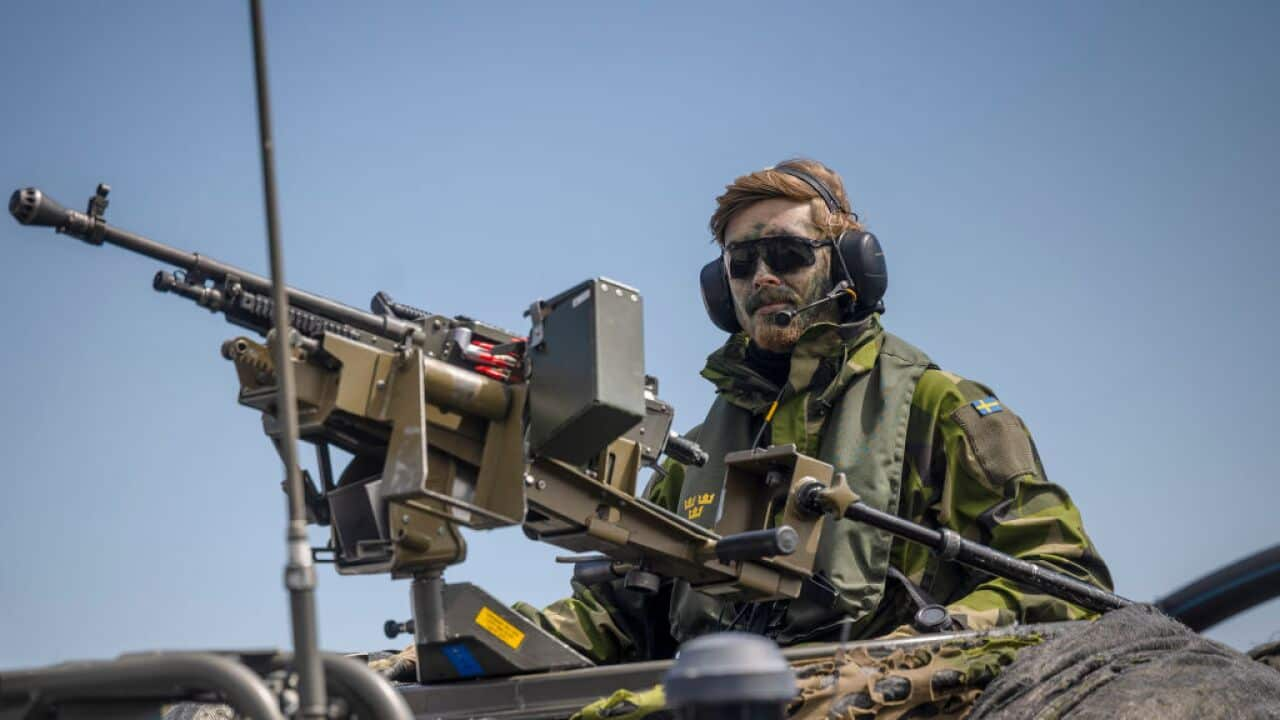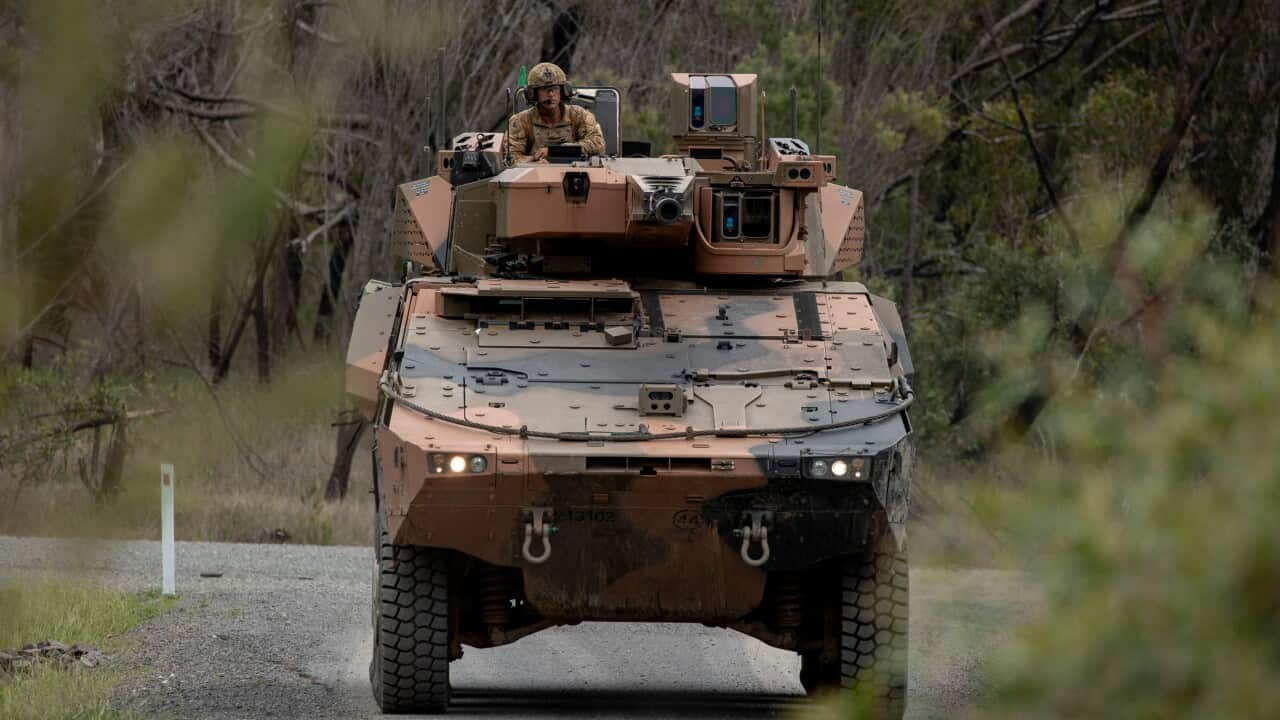Key Points
- Australia will donate an additional 30 protected mobility vehicles to Ukraine.
- Australia has now committed 120 of the vehicles to Ukraine.
- Anthony Albanese said Australia was steadfast in its commitment to Ukraine.
Australia will donate an additional 30 Bushmaster protected mobility vehicles to Ukraine, Anthony Albanese has announced.
The prime minister met with Ukrainian President Volodomyr Zelenskyy on the sidelines of a NATO summit in Lithuania on Wednesday night, where he pledged further military aid to support the country in its fight against Russia.
The package builds on Australia's previous commitment of 90 Bushmasters, taking the total number to 120.
Australia has provided more than $710 million in military aid, with overall support reaching a total of $890 million.
Albanese said Australia remained steadfast in its commitment to support Ukraine.
"We are proud to provide additional Bushmaster vehicles to assist the brave men and women fighting for their home and their nation's sovereignty," he said.
The Bushmasters already provided by Australia "have been particularly helpful in saving lives in Ukraine," Albanese said he had been told by the Ukrainian president and Defence Minister Oleksii Reznikov.
"Russia unilaterally launched this illegal and immoral invasion and should withdraw its troops and end the conflict immediately."
Zelenskyy expressed his gratitude after meeting Albanese.
"Thank you! A powerful new defence package, including 30 Bushmasters," he wrote on the Telegram app.
Australia this week announced a further step in its support for Ukraine - the deployment of an RAAF E-7A Wedgetail aircraft to protect the flow of assistance.
Albanese at NATO summit
Earlier, Albanese told NATO leaders Australia's partnership with the security alliance is crucial for global peace and prosperity.
The prime minister is in the Lithuanian capital Vilnius as part of a group of four Indo-Pacific nations sharing their concerns with European and other NATO partners about the global impact of Russia's invasion of Ukraine.
NATO members invited Australia, New Zealand, Japan and South Korea to provide insight into broader security challenges such as China's military expansion.
Albanese spoke at the summit, where it is understood he told leaders keeping the peace was not simply the responsibility of major powers but that all countries needed to contribute to the world's collective resilience.
He outlined Australia's work in reforming the defence force, working with Washington and London on the AUKUS partnership, and boosting diplomatic work in the Indo-Pacific region and with NATO partners.
After his meeting with Jens Stoltenberg, the NATO secretary general told reporters China "is not our adversary".
Chinese authorities said in a statement the nation opposed NATO's "eastward movement into the Asia-Pacific region".
"Any act that jeopardises China's legitimate rights and interests will be met with a resolute response," they said.
Ukraine is seeking to join NATO, but admission to the alliance is unlikely to take place soon.
NATO leaders have agreed on a long-term support package, deeper political ties and to further work with Ukraine on its accession which is not expected to occur until the war is over.
Albanese spoke to French President Emmanuel Macron on the summit's sidelines on Tuesday, as well as his UK counterpart Rishi Sunak, discussing progress on the AUKUS pact, the free trade agreement and cricket.
The prime minister also met with a bipartisan delegation of US senators who will play a role in passing laws to enable the transfer of Virginia class nuclear-powered submarines to Australia under the AUKUS partnership.
Trade and climate were on the agenda for a meeting with European Commission president Ursula von der Leyen on Wednesday.












